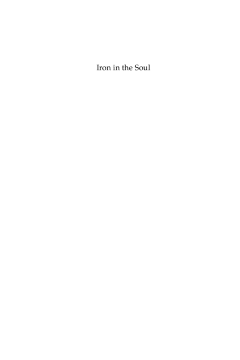
Additional Information
Book Details
Abstract
In his vivid, lively account of how Greek Cypriot villagers coped with a thirty-year displacement, Peter Loïzos follows a group of people whom he encountered as prosperous farmers in 1968, yet found as disoriented refugees when revisiting in 1975. By providing a forty year in-depth perspective unusual in the social sciences, this study yields unconventional insights into the deeper meanings of displacement. It focuses on reconstruction of livelihoods, conservation of family, community, social capital, health (both physical and mental), religious and political perceptions. The author argues for a closer collaboration between anthropology and the life sciences, particularly medicine and social epidemiology, but suggests that qualitative life-history data have an important role to play in the understanding of how people cope with collective stress.
"There are few if any longitudinal accounts of how long-term forcibly displaced populations survive and adapt. Providing a unique and intricate account of a lifetime in exile represented through the experiences of the refugees from Argaki, the book is an innovative contribution to the literatureï... A richly metaphorical style adds to the engaging content." · Journal of Refugee Studies
"This is an important book, not only in the very particular context of Cyprus, but also in the longitudinal study of displacement...Loizos quietly and clearly exhorts us to consider the profound and long-term effects of displacement, and Iron in the Soul cannot be recommended highly enough for anyone interested in the experience of refugees over time, the impact on health of forced migration, or the lived history of Cyprus over the past several decades." · JRAI
"What this work represents is the culmination of 40 years of engagement with the same community, a community that the author knew in his youth and with which he himself has grown and matured. This in itself makes the work a type of landmark in anthropology, and one that is best read in relation to his earlier work." · South European Society & Politics
"this is a classic showcase for the strengths of British socio-cultural anthropology: well-constructed, clearly expressed, accessible to the reader, written with great humanity, perceptive and acute. It is a model of writing and analysis, and a rich contribution to Cypriot anthropology and anthropology generally." · History and Anthropology
Peter Loizos†, was Professor Emeritus in Anthropology, London School of Economics. He was born in London, studied at Cambridge, Harvard and L.S.E., where he taught Social Anthropology for thirty-three years. As a photographer and documentary filmmaker, Peter Loïzos wrote a textbook on ethnographic films, and carried out development consultancies in Sudan, Sri Lanka, Nepal and Bangladesh for organisations including Oxfam, Save the Children and DFID. His latest work was an attempt to refine the concept of 'generation' in forced migration studies.
